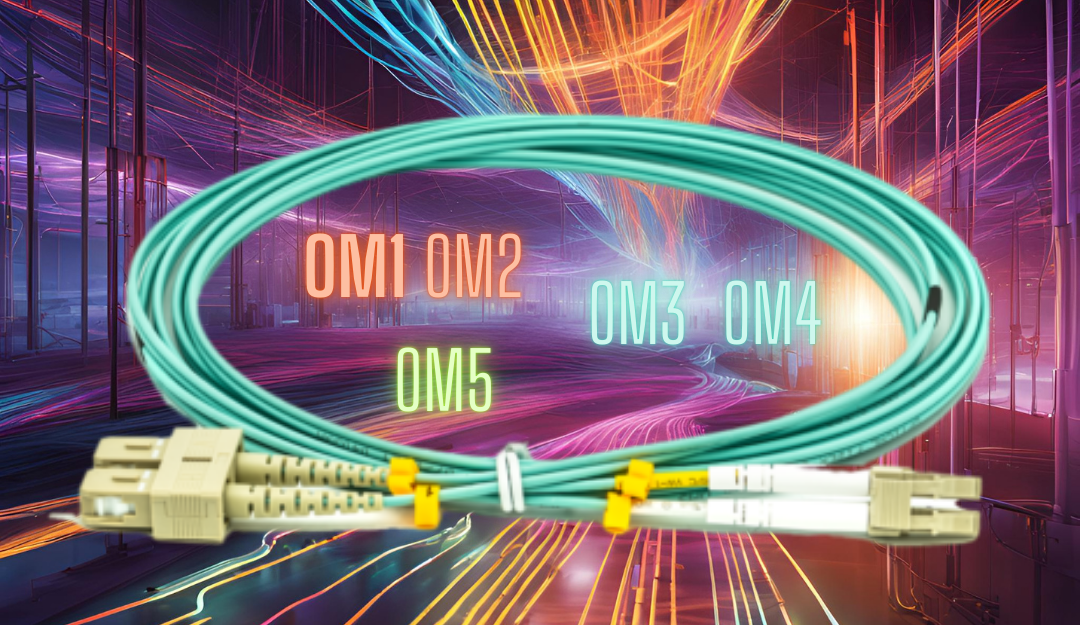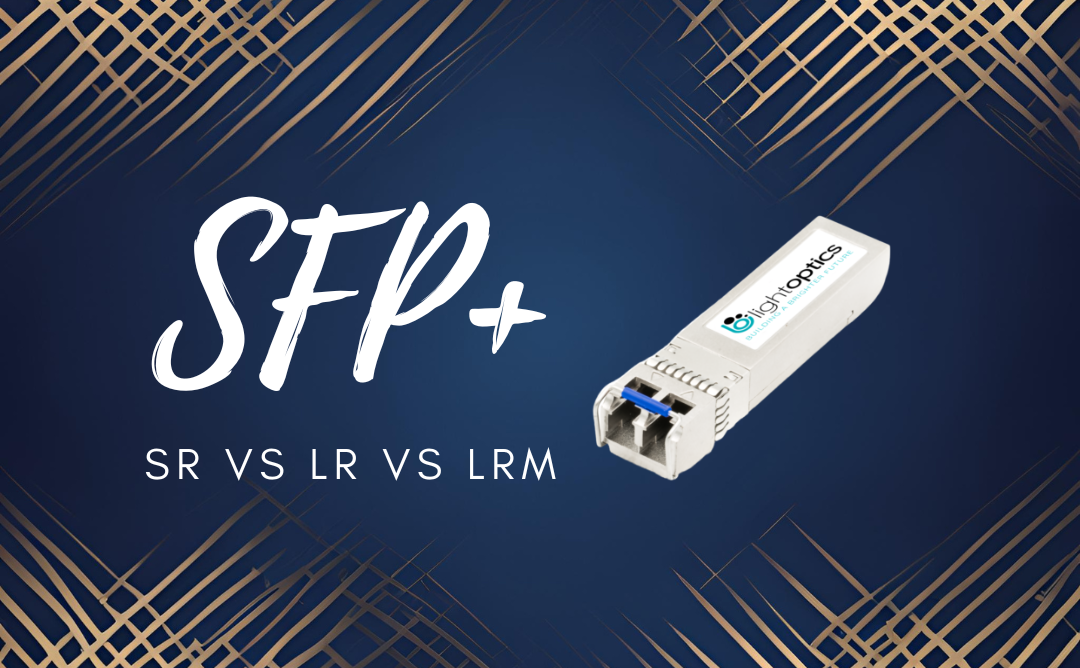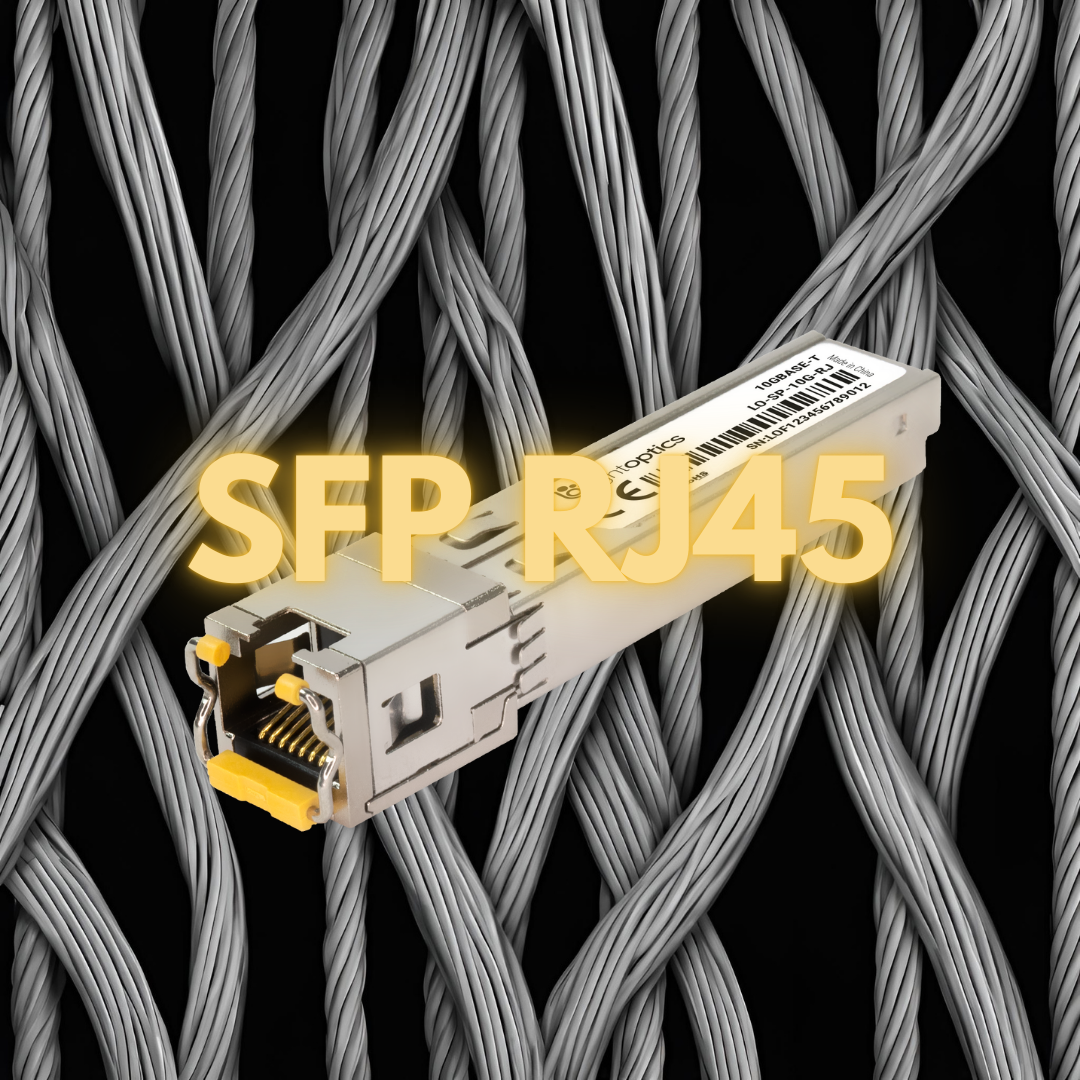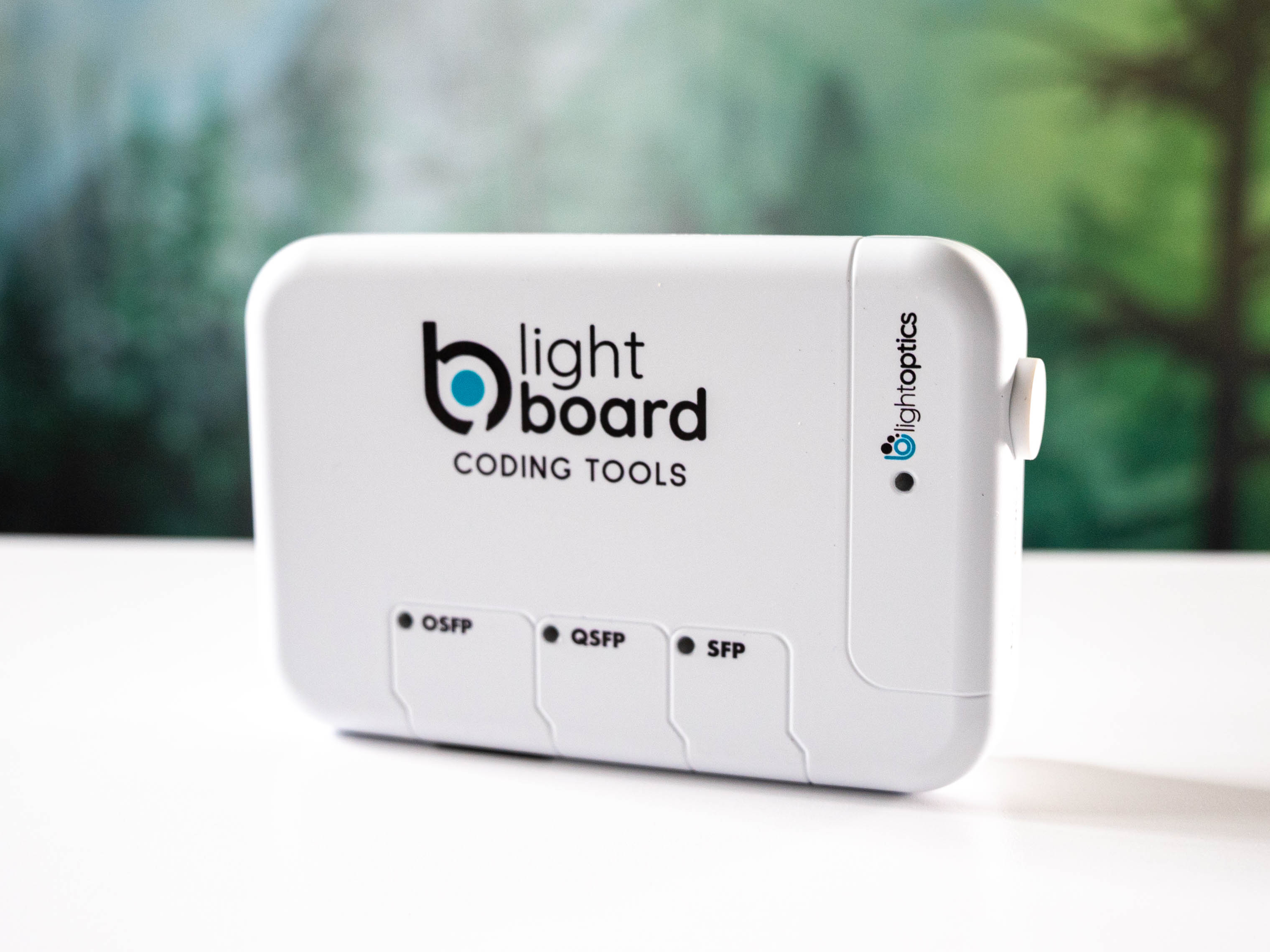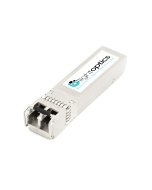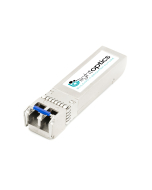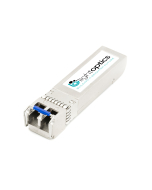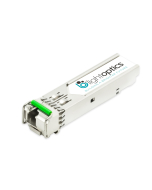Fiber optic modules, also known as SFP modules, miniGBICs, or transceivers, are basic active elements of fiber optic networks. SFP modules are responsible for transmitting and receiving fiber optic signals. They come in different form factors and support several telecommunication standards and a wide range of speeds from 100 Mbps to 800 Gbps (as of the date of writing the article).
What are SFP ports?
SFP ports – are fiber optic sockets used in network switches, servers, media converters, and routers, allowing these devices to be connected to a fiber optic cable. SFP port supports speeds from 100 Mbps for Fast Ethernet to 4 Gbps for Fibre Channel. With SFP sockets and SFP modules installed in them, the fiber optic signal is converted into an electrical signal.
How is an SFP transceiver built?
- transmitter optical sub-assembly (TOSA), called TX, which may include:
- LED diode:
- VCSEL
- Fabry-Perot FP laser
- DFB Distributed FeedBack
- DML Directly Modulated Lasers
- EML Electroabsorption Modulated Laser:
- LED diode:
- ROSA receiver (receiver optical sub-assembly), called RX
- optical components
- integrated circuit board: PCB – printed circuit board and chipset
Types of fiber optic ports
The most common types of fiber optic ports found in network equipment today are:
GBIC, SFP, SFP+, XFP, X2, XENPAK, SFP28, SFP56, QSFP+, QSFP28, CFP, CFP2, CFP4, QSFP56, QSFP-DD

How to choose SFP modules?
Do I need to buy expensive fiber optic transceivers offered by the vendor of my switch or another device?
No. You can use optical modules from the brand Light Optics which offers optical transceivers compatible with your device! They are a more affordable alternative to expensive components used for transmission in fiber optic networks.
What sets LightOptics transceivers apart
- Individual programming
Before shipment, each module is customized to your device to ensure that the fiber optic modules are correctly recognized in the switch, converter, or server.
- Parameter testing
Our engineers subject our products to rigorous testing and analysis, verifying, among others, if the diode and the laser faces are clean, and the repeatability of the PCB fabrication, they also carry out durability tests. They check the possibility of making configuration changes designed to adapt the optical modules to work with different network devices, to ensure compatibility and jitter-free operation.
- Quality
Made of high-quality components with repeatable optical performance, thanks to a permanent network of proven suppliers of components.
- Wide compatibility
Compatible with equipment from a wide range of vendors: 3Com, A10, ABB, Advantech, Alcatel, Allied Telesis, Arista, Aruba, Avaya, Baracuda, BNT, Broadcom, Brocade, CheckPoint, Ciena, Cisco, Coriant, CTC, Dahau, Dasan, DCN, Dell, D-Link ECI, EdgeCore, EMC, Enterasys, Ericsson, Extreme Networks, F5 Networks, Fibrain, Fortigate, Fortinet, Fujitsu, H3C, Harmonic, Hirschmann, HP, Huawei, IBM, Infinera, Intel, IXIA, Juniper, KTI, Lenovo, LightOptics, Mellanox, Mikrotik, MOXA, NEC, Netgear, NOKIA, NovaStar Nortel, PacketLight, Palo Alto, Planet, QNAP, RAD, Raisecom, Siemens, SonicWALL, Supermicro, Telco, TP-Link, Transmode, Ubiquiti, UTC, Westermo, ZTE, Zyxel.

- Dedicated Coding Tool
With the easy-to-use LightBoard mobile coding device from LightOptics, you can customize the coding of LightOptics modules on your own and adapt them to devices from most manufacturers on the market in a minute! The coding tool supports all LightOptics modules: SFP, SFP+, XFP, QSFP+ 40G, and QSFP28 100G, as well as DAC cables, of which each end can be programmed separately. Thus, they can be used to connect devices from different manufacturers.
- MSA-compliant
LightOptics modules are manufactured in accordance with the MSA standard. MSA - Multi-source agreement is an agreement between multiple vendors, ensuring mutual compatibility of products by defining certain standards of production.
- Warranty of 2 years
LightOptics modules come with a 24-month warranty
- EU-based service
We are a European distributor with local stock supply and support. We have more than 10 years of experience in providing fiber optic transceivers.
Can I damage my equipment by using third-party modules?
The use of unoriginal transceivers raises doubts among many users. What if the form factor is inappropriate and it gets stuck in the port? Or damages our device? Fortunately, LightOptics modules are compliant with MSA (multi-source agreement) standards and meet all quality requirements. To avoid complications, choose the LightOptics's fiber optic modules, tested by thousands of users.









